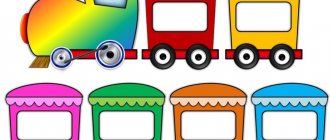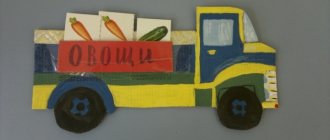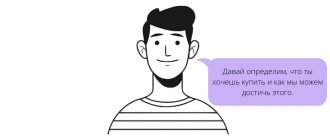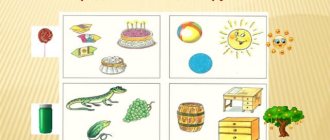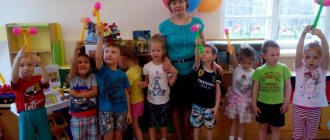Maria Malakhova
Didactic game
"
Vegetable garden "
.
For children of primary preschool age. Goal: - learn to determine the spatial arrangement of objects; clarify children’s knowledge about vegetables, where they grow, and their benefits to humans;
Learn to distinguish vegetables by appearance, describe them by their characteristic features;
Learn to use the general concept “Vegetables”
, enrich vocabulary by denoting qualities;
Develop attention, memory, perseverance, coordination of movements, fine motor skills of the hands.
Progress of the game: Children are given fruits and vegetables. They must distribute where the fruits grow and where the vegetables grow. While completing the task, children consolidate the names of vegetables.
Progress of the game: A garden is drawn on one album sheet, a vegetable garden on the other.
Nearby lie vegetables and fruits cut out of paper and colored with colored pencil.
Children distribute vegetables and fruits where they grow.
Publications on the topic:
Preschool children love to play with small toys. Therefore, they like to “plant” knitted vegetables in beds and knitted fruits.
DIY didactic game. To create this game, I made a layout on which I depicted a forest on one side and a forest on the other.
The game is made from an ordinary box covered with thick green fabric. A house is made from planks and glue. Decorative elements are used.
Games with food have always been interesting to children as such. Role-playing games in the “shop”, “vegetable garden”, “kitchen” are simply irreplaceable for girls.
DIDACTIC GAME “GIFTS FROM BURENKA!” Printed board game for children 4-5 years old TYPE OF GAME Cognitive orientation.
When working with children to develop fine motor skills, teach dialogical speech, and sensory education, you can use the following substitute items.
Summary of GCD for speech development. Didactic game for pronunciation of sounds [M]-[M'], [B]-[B']. Didactic game “Who left?” Goal: development of the articulatory apparatus. Objectives: 1. To develop the ability to clearly pronounce the sounds mm, b-b in sound combinations, to distinguish.
Dear Colleagues! In the nature center I placed a game for children of the second junior group “Vegetable Garden”, in the form of a model of a vegetable garden. The beds are made of centipon.
Abstract of the educational activity "Journey to the spring garden" of the workshop "Garden and Vegetable Garden" with children of the first junior group.
Didactic game “What grows in the garden, in the vegetable garden?”
Didactic game “What grows in the garden and vegetable garden”
This manual not only increases the level of the child’s cognitive sphere, but also enriches the vocabulary, allows you to practice grammatical categories, develop coherent speech, allows you to develop the sensorimotor sphere, verbal-logical thinking, improve memory, tactile perception, attention, perception, and develop the creative abilities of children.
Relevance of the manual “What grows in the garden?”
- has developmental, educational and educational significance.
Educational-
Consolidates knowledge about fruits and vegetables, develops cognitive interest in the world around us, helps introduce new concepts - gardening and vegetable gardening, and also develops children's attention, memory and vocabulary.
Developmental-
Develop word formation skills, practice selecting adjectives for nouns on the topic; develop sensory abilities, memory, attention, thinking, fine motor skills of the fingers.
Educational-
to cultivate grateful feelings for nature and people who, thanks to their work, receive a harvest.
Progress of the game:
“What grows in the garden?”
- a traditional game for developing thinking and speech. Children are encouraged to recognize vegetables and fruits and associate them with where they grow.
This manual can be supplemented with the following games:
The game “Wonderful Box” trains fine motor skills, develops imagination and memory
Children take turns taking fruit out of the box and trying to describe its appearance, color, shape).
Game "Pick the sign." Selection of adjectives for nouns.
Tomato (what kind?) - large, round, red, juicy, etc.
Apple (what kind?) - green, round, hard, large, etc.
Game "Fourth wheel". Develops logical thinking, memory, attention, development of tactile sensations.
A fruit representative is placed in a row with vegetables. The child is asked to find the “extra” and justify his choice. Game “One - Many”. Formation of the plural form of nouns. Tomato - Tomatoes, Carrot - carrots, Lemon - lemons, etc.
Game "Greedy". – training in the correct use of the words “my”, “mine”, “mine”, “mine”, and the agreement of words by gender. Mine is a carrot, mine is a tomato, mine is an onion, mine is an apple,
Game "What has changed?" - develops memory and attention. Arrange vegetables and fruits. Ask the children to look at them carefully and remember. Then the children close their eyes. Remove an object or swap objects.
Game "Shop". what did you buy? (Apple) Which apple? (Red, round, hard,) what did you buy? (Lemon) Which lemon? (Yellow, oval, hard, sour), etc.
Didactic game "Vegetable garden"
Didactic game for young children
"Garden"
The didactic game “Vegetable Garden” is intended for preschool children in classes on cognitive development, the formation of primary ideas about the objects of the surrounding world, for the development of sensory perception, FEMP, and speech development.
The didactic game “Vegetable Garden” can be used both in direct educational activities and during routine moments to continue to familiarize children with the appearance and names of vegetables. To develop children’s ability to compare objects and group them according to common characteristics, to teach them to determine the spatial arrangement of objects, to clarify children’s knowledge about vegetables and their place of growth, their benefits to humans, to teach them to distinguish vegetables by appearance, to describe them by their characteristic features, to teach them to use generalizing words. the concept of “Vegetables”, enrich vocabulary, develop attention, memory, perseverance, coordination of movements, fine motor skills of the hands, develop attention, memory, develop auditory attention, correct pronunciation of words.
Tasks:
— Teach children to listen to an adult, watch what he does and
shows, imitate his words and actions, complete the task;
— Enrichment of children’s vocabulary with nouns denoting the name
fruits and vegetables; adjectives denoting color, size
subject;
— Consolidation of knowledge about primary colors;
- consolidate the concepts one, many;
- teach children to distinguish between the number of objects (one - many);
- reinforce the concepts of big and small in children;
— develop children’s ability to form groups of homogeneous objects;
— Development of fine motor skills of the hands;
— Development of auditory attention, vocal apparatus in children, memory.
pictures to do this
tasks.
Rules of the game: the game is intended for individual work with one
child with the participation of a teacher.
The first task - the teacher shows the child two beds, on one
carrots grow in one garden bed, and cabbage in another. The teacher tells
a poem about vegetables, showing them in a picture. The child is given
additional cards with images of carrots and cabbage. Further
The task is given - to plant carrots and cabbage in your garden bed. After that,
Once the child completes the task, he is asked questions (what vegetables grow
in the garden? What color are carrots and cabbage? How many carrots do you have in your hand?
how many are in the garden?
Explanatory note:
At an early age, a child masters the greatest achievement of humanity - speech. In order for children to master speech, they must be taught this.
To effectively master the lexical topics “Vegetables”, I developed and produced a didactic game “Vegetable Garden”
Tasks:
— Accustom children to listen to an adult, watch what he does and shows, imitate his words and actions, and complete the task;
— Enrichment of children’s vocabulary with nouns denoting the name of fruits and vegetables; adjectives denoting the color, size of an object;
— Formation of the ability to answer questions “what?”, “which?”, “where?”;
— Consolidation of knowledge about primary colors;
- consolidate the concepts of “one”, “many”;
- teach children to distinguish between the number of objects (one - many);
- reinforce the concepts of “big” and “small” in children;
Rules of the game: the game is intended for individual work with one child with the participation of a teacher.
The first task is for the teacher to show the child two beds; carrots grow in one bed, and cabbage grows in the other. The teacher recites a poem about vegetables, showing them in the picture. The child is given additional cards with pictures of carrots and cabbage. Next, you are given the task of planting carrots and cabbage in your garden bed. After the child completes the task, he is asked questions (what vegetables grow in the garden? What color are the carrots, cabbage? How many carrots do you have in your hand, how many are in the garden?
Result: as a result of using this game in individual
types of work with children, the level of speech development increases,
memory and attention develop. We try to diversify gaming
tasks, children complete them with pleasure and interest.
My kindergarten
Author: Lyamina Natalya Yurievna , teacher, Municipal budget preschool educational institution of compensatory type N76 “Veterok”, Republic of Tatarstan, Naberezhnye Chelny.
Children line up around the perimeter of the playground.
Host: Guys! Today is an unusual day, hot, summer. We celebrate gardener's day. Since ancient times, all people have worked on the land - planting seeds, digging the ground, watering plants. And for all their labors, Mother Earth gave them a harvest (vegetables, fruits, berries). Let's celebrate the holiday with a cheerful song.
Song "Merry Garden"
Summer enters. Summer: Hello, boys, girls and boys! So the sun woke up, stretched, smiled, invites all the children to go for a walk, and play on the grass!
Host: Hello, summer! Hello summer! Everything is warmed by the bright sun! Let's take a look into the garden, guys. Oh, nothing grows there! Let's plant a garden together.
Game “Planting a Vegetable Garden”
We took shovels and imitated the movements of the beds. They took the rake in hand and leveled the ground. They took watering cans in their hands and watered the beds. The garden has grown and grown!
Host: Guys, what grows in the garden? (vegetables) Correct. What is needed for vegetables to grow? Let's call the rain for help, guys.
Call: Rain, rain, harder, you are our vegetable garden!
Rain comes in. Rain: Hello guys, I’ll help you, I’ll wake up your beds. Let many plants grow in your garden. Let's play a game with you.
Game “Rain, have fun!”
Rain, rain, have fun! Hit your palm with your finger. Drip, drip, don't be sorry! Just don’t kill us by threatening us with your index finger. Don't knock on the window in vain! It’s better to splash it in the garden - “Inviting” hand movements. Let the carrots grow there. Smoothly extend your arms to the sides.
Presenter: Rain, the guys and I know a song about you, listen.
Song “Rain” (in Tatar)
Rain: Well done, guys, what a beautiful, melodious song. The cheerful, mischievous rain came to the garden with me: I hold the rain cloud by the hand.
Song "Tuchka"
Summer: Guys, what else is needed for the vegetables in the garden to grow large, tasty and rosy? (Sun). I suggest you sing a song about the sun.
Song “About the Sun” (in Tatar).
Summer: The rain watered the earth, the sun warmed up. And there are a lot of ripened vegetables in the beds. Guys, what is growing in the garden?
Guess the riddles:
- The red maiden sits in prison, and her braid is on the street. (carrot)
- As I put on a hundred shirts, it crunched in my teeth. (cabbage)
- The grandfather is sitting, dressed in a fur coat, and whoever undresses him sheds tears. (onion)
- In the middle of the courtyard is the Golden Head. (sunflower)
- Our piglets grew up in the garden bed sideways to the sun, with crocheted tails. These little pigs are playing hide and seek with us. (cucumbers)
- Little, bitter brother of Luka. (garlic)
Rain: You guys are bored. Let's have fun and play.
Game “The Bunny Had a Garden”
The bunny had a vegetable garden and spread his arms to the sides. There are exactly two beds. Extend your arms straight forward. There he played snowballs in the winter, imitating “making snowballs”, and in the summer - hide and seek. They squat, covering their eyes with their palms. And in the spring they go to the garden on the spot. The bunny walks happily. But first, everything will be dug up. They imitate digging. And then everything is leveled, they stomp their feet. He sows the seeds deftly, presses his left hand to his chest, and goes to plant carrots. With the right hand they “scatter seeds” Hole – seed, hole – seed, Bend forward. And you look, in the garden again Slowly they raise their hands up, Peas and carrots will grow. Palms parallel to the floor. And when autumn approaches, they spread their arms to the sides. He will reap his harvest. Press your palms to your chest.
Round dance "Garden round dance"
In the garden, in the vegetable garden We walked merrily, In the garden, in the vegetable garden We dug up beds. The seeds were planted in the garden bed, they were lowered into the hole, and then the garden bed was watered with warm water. You grow up quickly, carrot! We will weed the garden bed, the warm rain will fall on you, on the field.
Host: Guys, look how many birds fly in the garden. In order for our vegetables in the beds to grow large, strong, tasty and juicy, so that they are healthy and contain a lot of vitamins, birds should not peck them. Who will scare away the birds? (garden scarecrow).
A garden scarecrow is dressed up in front of the children: the presenter and the characters put a shirt, trousers, and tie on a stick, and a wig and hat are put on the head.
Presenter: This is how beautiful the owner of our garden turned out, he will protect our garden from birds. Let’s go with you to the garden and put up a garden scarecrow.
The presenter and the children install the garden scarecrow in the designated place. (to the garden bed)
At the end of the holiday, children are given treats (fruits).
Fun music is playing, children are having fun with the characters.
Progress of the game:
The teacher distributes all the pictures to the players and suggests putting pictures with drawn fruits on one side, and pictures with berries on the other. Children must list fruits and berries and name them with a general word.
The teacher distributes pictures with drawn berries, invites the players to divide pictures with forest and garden berries into groups, list them, and call them with a general word. It is necessary to take into account that some berries grow both in the forest and in the garden.
The teacher distributes pictures with drawn fruits, invites the players to sort pictures with fruits from our region and hot countries into groups, list them, call them with a general word.
Didactic games Dear colleagues, I would like to present to your consideration didactic aids made from waste material for children. February 17, 2022 in our children's room. Didactic games and riddles on the theme “Winter” Age audience: for preschool children 5-7 years old. Purpose: these didactic games can be used when conducting. Didactic games for the topic “Wild Animals” 1. Didactic game “Count the animals and write the number” Purpose: count objects and correlate the number with the number; determine. Didactic games “Weaving a rug”, “Games with clothespins” No less interesting games were made by Daria Dudina’s family. The educational game “Weaving a Rug” is made of thick multi-colored oilcloth.
Didactic games on traffic rules Car The box contains a disassembled model of a car (puzzles). Children, at the teacher’s command, begin to collect it. The child wins.
Didactic games on the topic “School supplies” for children of the senior group Didactic games on the topic “School supplies” for children of the senior group. I bring to your attention games that are in their own group. My didactic games My didactic games. “What colors are used” Purpose: To teach children to distinguish between 2 shades of the same color; practice using words that denote. An open lesson to prepare children for learning to read and write on the lexical topic “Vegetable garden. Vegetables" in the preparatory group Lexical topic: "Vegetable garden. Vegetables. “Goal: Expansion, clarification and activation of the dictionary within the framework of the topic being studied, the formation of lexical and grammatical. Educational didactic games and an unconventional information stand for parents on the theme “Autumn” As part of the theme of the week “Autumn”, didactic games on sensory development were made with our own hands for children of the first junior group. Data.
Source


